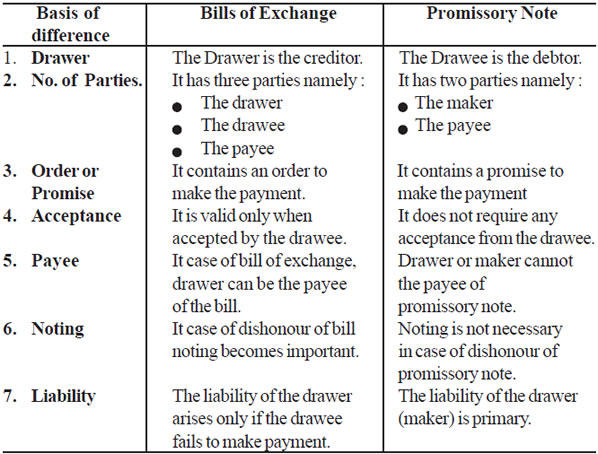Accounting for Bills of exchange
ADVANTAGES OF BILL OF EXCHANGE
- It helps in purchases and sales of goods on credit basis.
- It is a legally valid document in the eyes of law. It assures a easier recovery to
the drawer if drawee fails to make the payments.
- A bill can be discounted from the bank before its date of maturity. By
discounting with the bank, drawer can get the money before due date if required.
- It can be easily transferred from one person to another by endorsement.
- It helps in recovery of debt without sending reminders to the debtor.
- It assures the seller about the timely recovery of debt. So a drawer and drawee
can plan about its cash management.
PROMISSORY NOTE
A Promissory note is an instrument in writing (not being a bank note or a currency
note) containing an unconditional undertaking signed by the maker to pay a certain
sum of money only to or to the order of a certain person or to the bearer of the
instrument.
FEATURES OF A PROMISSORY NOTE
- There must be an unconditional promise to pay a certain sum of money on a
certain date.
- It must be signed by the maker.
- The name of the payee must be mentioned on it.
- It must be stamped according to its value.
PARTIES TO A PROMISSORY NOTE
- The maker : The maker is the person who makes the promise to pay the
amount on a certain date. Maker of a bill must sign the promissory note before giving
it to the payee.
- The payee : The payee is the person who is entitled to get the payment
from the maker of romissory note. Payee is the pesson who has granted the credit

DISTINCTION BETWEEN BILLS OF EXCHANGE AND PROMISSORY
NOTE:-

CBSE Accountancy Class XI ( By Mr. Aniruddh Maheshwari )
Email Id : [email protected]

